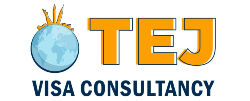Canada Student Visa After 5 to 25 Years Long Gap

“Can one apply for Canada’s Study Visa after a 10-year gap?”
- Yes, you can. It doesn’t matter if you are applying for a Canada study visa after 7 years, 10 years, or even 25 years. However, most universities allow a study gap of two years for undergraduate courses and five years for postgraduate courses.
- This does not mean that applicants with long educational gaps are unqualified. Many people pursue higher education later in life due to exceptional circumstances.
- This blog will explain what is a Study Gap? and if a Study Gap is acceptable in Canada.
- What Is a Study Gap?
- A study gap refers to a period of time taken off from formal education. This break can occur at various stages of a person’s academic journey, such as between high school and college, during undergraduate studies, or between undergraduate and postgraduate education. Study gaps can be intentional or unintentional and may be taken for a variety of reasons.
- Advantages and Disadvantages of Study Gap
Study Gaps can be a blessing for some students and difficult for the rest. Let’s find out the advantages and disadvantages of a Study Gap for Students.
Advantages
- Personal Growth and Development:
- Maturity and Perspective: Time off can help students gain maturity and a broader perspective on life and their future goals.
- Self-Discovery: A study gap allows students to explore their interests, strengths, and career aspirations, leading to more informed decisions about their education and career paths.
- Work Experience:
- Practical Skills: Gaining work experience can provide practical skills that complement academic learning.
- Financial Stability: Earning money during a gap year can help fund future education or reduce student debt.
- Academic Benefits:
- Improved Performance: A break can rejuvenate students, leading to better academic performance when they return to their studies.
- Enhanced Focus: Time away can help clarify academic and career goals, resulting in more focused and motivated study.
- Cultural and Social Exposure:
- Global Awareness: Traveling during a gap year can expose students to different cultures, enhancing their cultural awareness and adaptability.
- Networking: Engaging in various activities can help students build a broader network of contacts and professional connections.
- Mental Health:
- Reduced Burnout: Taking a break can help prevent or recover from academic burnout, reducing stress and anxiety.
Disadvantages
- Academic Delay:
- Delayed Graduation: A study gap means students will graduate later than their peers, potentially delaying entry into the workforce or postgraduate studies.
- Skill Attrition: Extended time away from academic work can lead to a loss of study habits and academic skills.
- Financial Implications:
- Cost: Some gap year activities, like traveling, can be expensive and may not be financially feasible for all students.
- Lost Earnings: Delaying graduation can result in a later start to earning a full-time salary.
- Re-entry Challenges:
- Adjustment Issues: Returning to academic life after a gap can be challenging, requiring adjustments in routine and study habits.
- Acceptance: Some educational institutions may have stringent policies or negative perceptions about gaps in education, potentially impacting admissions.
- Professional Perception:
- Employability Concerns: Some employers might view a study gap negatively, perceiving it as a lack of commitment or continuity.
- Social Impact:
- Peer Disconnection: Students taking a gap year might find it challenging to reconnect with their peer group, who may have advanced in their studies or started their careers.
- What Are Study Gap Reasons Accepted In Canada?
Generally, these are the following study gap reasons accepted:
- Health: Health is one of the common reasons for the Study gap in Canada. A medical or health issue can be a valid reason for a study gap.
- Financial difficulties: Financial difficulties preventing you from completing your studies can be a valid reason for the study gap. Canadian universities easily accept this study gap reason.
- Personal reasons: Any personal issues, such as a death in the family, can also be a valid reason for the study gap. This is an easily acceptable reason for a study gap.
- Academic issues: Academic issues, such as repeatedly failing classes or not doing well in academic studies, can become a valid reason for the study gap.
- Work commitments: It can also be a valid reason if you have had to take time off for your work commitments or to take care of your dependents.
- What Are The Required Documents to Justify the Study Gap in Canada?
Obtaining a Canada student visa after a long gap of 5 to 25 years can be challenging but is definitely possible. Here are some steps and tips to help you strengthen your application:
1. Prepare a Strong Statement of Purpose (SOP):
- Explain the Gap: Clearly outline the reasons for the gap in your education. Valid reasons might include employment, personal or family responsibilities, health issues, or other life circumstances.
- Demonstrate Motivation: Highlight your motivation to return to studies and how this education will benefit your career and personal growth.
- Connect Past Experience with Future Goals: Show how your past experiences are relevant to your chosen course and how this course will help you achieve your future goals.
2. Choose the Right Course:
- Select a program that aligns with your career path and previous work experience.
- Make sure the course makes sense in light of your career trajectory, showing a clear progression.
3. Provide Supporting Documents:
- Educational Transcripts and Certificates: Include all your previous educational qualifications.
- Work Experience Letters: Provide letters from employers detailing your work experience during the gap years.
- Professional Certifications: Include any professional certifications or training you completed during the gap.
- Medical Records: If applicable, provide medical records that explain any health-related gaps.
4. Proof of Financial Stability:
- Show evidence of sufficient funds to cover tuition fees, living expenses, and return transportation.
- This can include bank statements, scholarship letters, or sponsorship documents.
5. English/French Language Proficiency:
- Provide valid test scores for IELTS, TOEFL, or other accepted language proficiency tests.
- If you have been working in an English or French-speaking environment, provide proof of that.
6. Acceptance Letter from a Designated Learning Institution (DLI):
- Obtain an acceptance letter from a recognized Canadian educational institution.
7. Check Eligibility for Study Permit:
- Ensure you meet all the eligibility criteria for a Canadian study permit.
- This includes being a law-abiding citizen with no criminal record and in good health.
8. Address Any Immigration Concerns:
- Be prepared to address any concerns the visa officer might have about your long gap.
- Emphasize your commitment to completing the course and returning to your home country if required.
9. Prepare for the Interview:
- If required, prepare for an interview with the visa officer.
- Be honest, clear, and concise in your answers.
Additional Tips:
- Stay updated on any changes in the visa application process or requirements.
- Ensure all documents are authentic and properly translated if necessary.
- Demonstrate how the education will help you contribute positively to your field or community.
By carefully preparing your application and addressing potential concerns about the gap in your education, you can improve your chances of obtaining a student visa to study in Canada.






